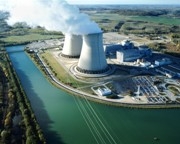EDF - NPP - Nogent-sur-Seine
ID RNM
nog
Image

Body
Located on the right bank of the Seine river, in the department of Aube, the Nogent-sur-Seine NPP comprises 2 pressurized water reactors of 1300 MW that were coonected to the grid between 1987 and 1988.
Crédit Photo Michel Monteaux.
Tooltip
EDF - Nogent-sur-Seine NPP
Located on the right bank of the Seine river, in the department of Aube, the Nogent-sur-Seine NPP comprises 2 pressurized water reactors of 1300 MW that were coonected to the grid between 1987 and 1988.
Site unique ?
 return to top
return to top





